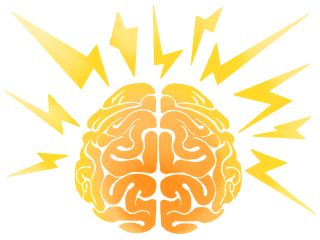Chronic Pain
Are You Preoccupied With Pain?
Shifting your focus away from pain improves quality of life.
Posted October 21, 2023 Reviewed by Ray Parker
Key points
- Shifting attention away from pain is possible.
- You can use strategies to shift your attention away from pain, such as focusing on something you value.
- Shifting attention away from pain reminds you that your life is more significant than your pain.

Pain can easily occupy most of our thoughts and attention. When pain is highly uncomfortable, it can be challenging to focus on anything else.
This can lead to a vicious cycle as the more you ruminate on or catastrophize pain (imagining the worst possible outcome), the worse it tends to feel, making pain even more mentally consuming.
Where we put our attention often seems involuntary and out of our control. Certain things, such as pain, demand a lot of attention. Nonetheless, while it takes practice, shifting attention from pain to other important or meaningful things is possible. And the more you do so, the less control pain has over your daily life. You are choosing what you focus on, not your pain.
Also, constantly thinking about pain can make it difficult to feel content with life. Practicing shifting your attention to meaningful and enjoyable things reminds you that there are pleasant aspects of your life. It offers more opportunities for contentment even if the pain continues.
Shifting Focus Away From Pain
It is helpful to give pain enough attention to notice your experience. Observing your physical sensations, pain level, and possible triggers or exacerbations of pain is useful. The more understanding you have of your pain, the more options you have for managing it.
Yet, observing your pain is different than dwelling on it. If you start to feel mentally consumed by pain, practice shifting your attention away from it to important or meaningful things using these strategies.
- Pause. Stop and notice what is happening at the moment. Are you ruminating or dwelling on your pain? Does your brain feel stuck on thoughts about pain, almost as if your thoughts are stuck on a piece of sticky Velcro in your mind? Or is your mind a broken record where the same thoughts are repeated repeatedly instead of moving on to the next verse in the song?
- Focus on something mindless. Aim to give your mind a break. Play a computer mindfulness game, watch TV, color, or fold laundry. Engage in an activity that doesn’t require mental effort.
- Intentionally focus on something that takes mental effort differently than focusing on unhelpful thoughts of pain. Play a challenging game. Read a thought-provoking book. The aim is to occupy your mental energy with an engaging and pleasant task.
- Focus on something that you value. Something meaningful and important to you. Maybe that involves listening to or spending time with a loved one, helping a friend, or spending time in nature.
- Take a time-out. Getting a change of scenery can help shift attention; sometimes, all that is needed is walking into a different room. Or, if possible, go for a walk outside. Physical movement and fresh air are often invigorating and can enhance mental clarity.
- Think about and observe what you are grateful for in daily life. Saying “Thank you” to someone or having an internal feeling of joy or excitement, for example, can be signals of gratitude that you appreciate something or someone. See if you can practice briefly pausing when you have the instinct to say “Thanks” or feel a sense of joy, and see if you can name what you are grateful for now.
- Look for times, even briefly, when your mind was so focused on something enjoyable or important that your pain receded into the background. These examples can remind you that your pain is experienced more intensely when you pay attention to it and less intensely when you focus on other things.
Shifting focus away from pain takes practice. However, the more you focus on other things, the less control pain has over your life and the more enjoyable your life will be.


